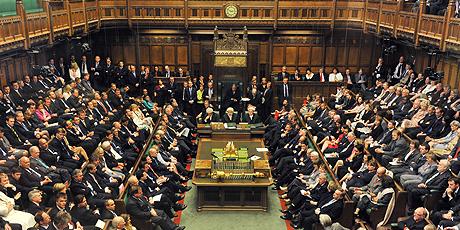Politics is worthless many people agree. For that reason, the use of politicians may need some clarification. Humans became the dominant animal species because they cooperate in large numbers in a flexible way. This makes us unique in the animal world. Some animals such as ants and bees can cooperate in large numbers, but they are not flexible in the ways they do that. Their cooperation is based on their genetic code. Social animals like chimpanzees, elephants, wolves and dolphins can cooperate more flexibly, but not in very large numbers. Cooperation in a chimpanzee band, an elephant band or a wolf pack is based on the intimate familiarity of the band members.1
Language is a tool for human cooperation. Animals have languages too. Animals can communicate about the whereabouts of food or enemies. Only, human language is used for many more things. Most notably, humans gossip and talk about what other people are doing and thinking. This gives them better information about other people in the group so that they can develop more sophisticated ways of cooperating. Apes like chimpanzees, baboons and gorillas all show interest in social information, but they have trouble gossiping because their languages don’t allow for that.1
The truly unique feature of human language is not gossip, but its ability to transmit information about imaginary things. All forms of large-scale human cooperation, such as nation-states, churches, cities and corporations, are rooted in fictions that exist only in the collective imagination of human beings. Myths, like the existence of gods, laws, corporations and nation-states, gave humans the unprecedented ability to cooperate flexibly in very large numbers. For example, churches are based on common religious beliefs. Religious beliefs make it possible that Christians who never met before can do things together like going on a crusade or building a hospital.1
Religions and ideologies have a lot in common. You could call them myths or models of reality. Religions as well as ideologies maintain there is a superhuman order of universal laws that govern the world, which should guide human actions. For example, Buddhists believe that the law of nature was discovered by Siddhartha Gautama. Communists believe that the laws of nature were discovered by Karl Marx. Like other religions, Communism had its holy scriptures and prophetic books such as Das Kapital, which prophesied that history would soon end with the inevitable victory of the proletariat over the capitalist system.1
So what does this have to do with politics? In democracies, people can decide about what needs to be done and determine who should do what. Politics involves discussing collective imaginations such as laws, nation-states, religions and ideologies to determine what course of action should be taken as well as gossip to determine who should do what, for instance, who is going to be the leader of a political party or a nation. Many people nowadays believe that democracy is the best political system, even though democracy has disadvantages too.
Politicians may not do what they promised their voters to do. There might be an intense political struggle. And politics might result in poor decisions when voters don’t like the measures that need to be taken. In times of upheaval, people might opt for someone who promises to take drastic action, for instance when the economy has collapsed or when insurgents and criminals wreak havoc. The most notorious example in history was the rise of Adolf Hitler. The suffering of the Germans during the Great Depression and the inability of politicians to relieve their plight helped Hitler to grab power.
Even in stable and established democracies, citizens may have little faith in politicians. The politicians in parliament do not represent the makeup of the population at large. People who like to talk, like lawyers and teachers tend to be overrepresented. Engineers who know how systems work tend to be underrepresented, which may explain why laws often fail to meet the intended objectives. The same applies to poor people and people with little education, which may explain why their interests are often neglected. Perhaps giving citizens more responsibility via direct democracy can help to solve these issues.
Featured image: House Of Commons in the United Kingdom. Parliament.uk. [link]
1. A Brief History Of Humankind. Yuval Noah Harari (2014). Harvil Secker.

